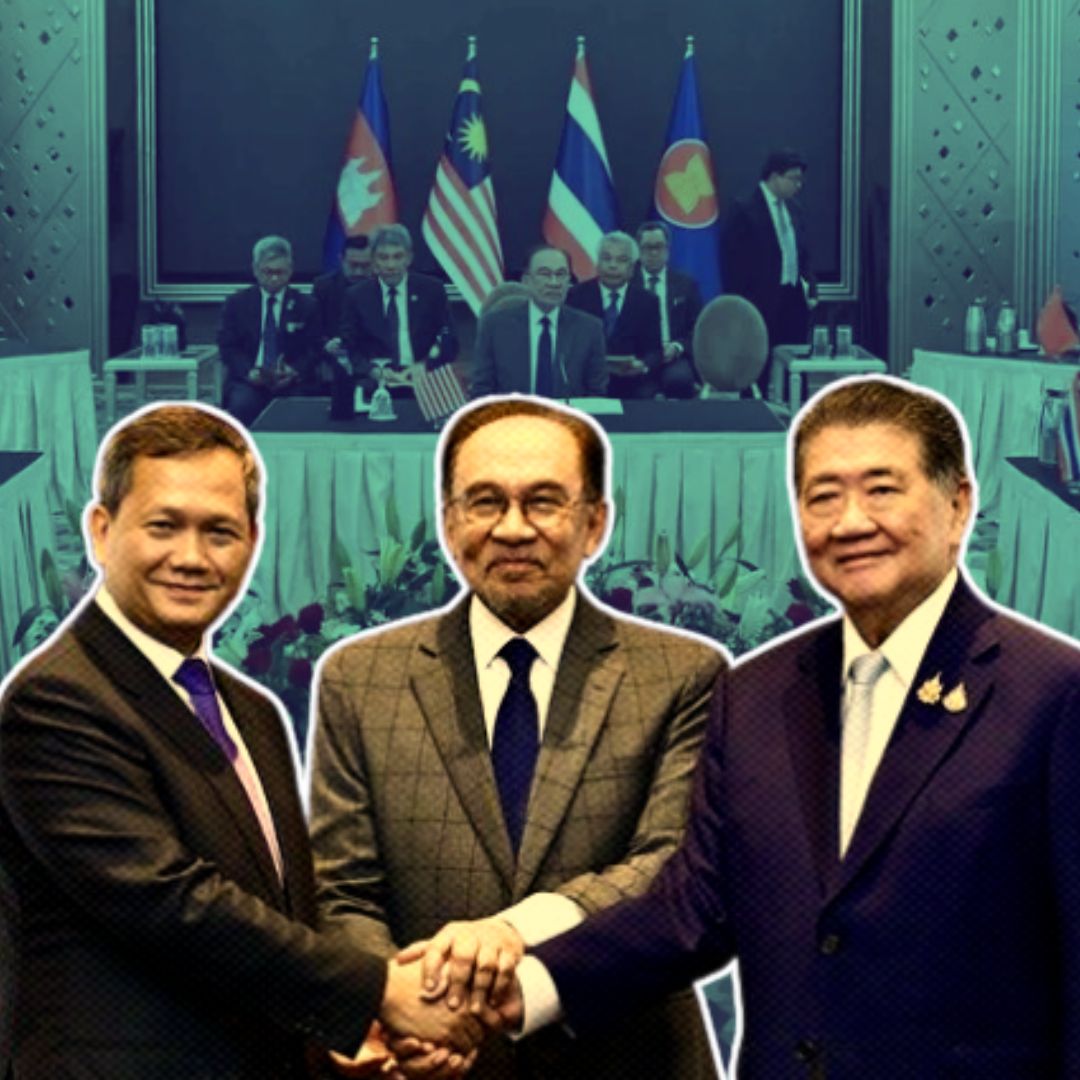Cambodia and Thailand have agreed to an immediate and unconditional ceasefire, effective from midnight on July 28, 2025, following the deadliest border confrontations in over a decade. The fighting, which erupted after a landmine explosion injured Thai soldiers on July 24, resulted in at least 36 fatalities and displaced over 260,000 people along the contested border region.
The ceasefire agreement was brokered in Malaysia under the mediation of Prime Minister Anwar Ibrahim, with key diplomatic support from the United States and China. While both nations expressed cautious optimism, tension lingers over accusations regarding the outbreak and continuation of hostilities. The region watches closely, hoping the truce will pave the way for lasting peace after decades of unresolved territorial disputes.
Ceasefire Achieved Through High-Level Diplomacy
The breakthrough came after nearly a week of intense clashes, beginning on July 24, that escalated quickly from a landmine blast to heavy artillery exchanges and airstrikes. Malaysian Prime Minister Anwar Ibrahim, acting as ASEAN’s chair and mediator, hosted direct talks in Putrajaya attended by Cambodia’s Prime Minister Hun Manet and Thailand’s acting Prime Minister Phumtham Wechayachai.
Both leaders signed on to an immediate ceasefire agreement, which Anwar described as “a vital step towards restoring peace and security” in the region. Hun Manet emphasised the necessity of “ongoing effort and sincerity” to ensure stability beyond the initial truce, while Prime Minister Wechayachai echoed the commitment to peace but expressed concerns about the practical implementation of the ceasefire by Cambodia. High-level envoys from the US and China played instrumental roles in encouraging dialogue and pushing for a peaceful resolution, reflecting the broader international focus on Southeast Asian stability.
Deep-Rooted Border Disputes Fuel Tensions
The Cambodia-Thailand border has been a flashpoint for decades, rooted in ambiguities dating back to colonial-era maps drawn by French administrators in the early 20th century. The recent flare-up was triggered by the July 24 landmine detonation that injured Thai soldiers, sparking a swift and violent military response. Fighting spread across multiple border locations, involving artillery barrages, air force strikes, and ground assaults. Both nations have accused each other of targeting civilian areas, contributing to the humanitarian toll. Authorities in Thailand declared martial law in border provinces, and tens of thousands fled to safer areas amid the violence.
International bodies including ASEAN and the United Nations promptly called for restraint and dialogue. Despite the ceasefire announcement, officials confirmed that sporadic skirmishes persisted on the first day of the truce, highlighting lingering mistrust and challenges in enforcing the agreement.
The Logical Indian’s Perspective
The recent ceasefire between Cambodia and Thailand is a critical, hopeful development amidst a backdrop of violence and displacement. The Logical Indian believes that territorial disputes, no matter how complex or historic, must never overshadow the value of human life and the urgent need to protect vulnerable communities. Dialogue, empathy, and mutual respect remain the bedrock of lasting peace.
As diplomatic efforts continue, The Logical Indian urges all parties to prioritise humanitarian aid and reconciliation measures so that displaced citizens can return safely, and trust can be rebuilt. Beyond governments, ordinary citizens and civil society have a vital role in fostering peace through people-to-people ties and cross-border cooperation.










